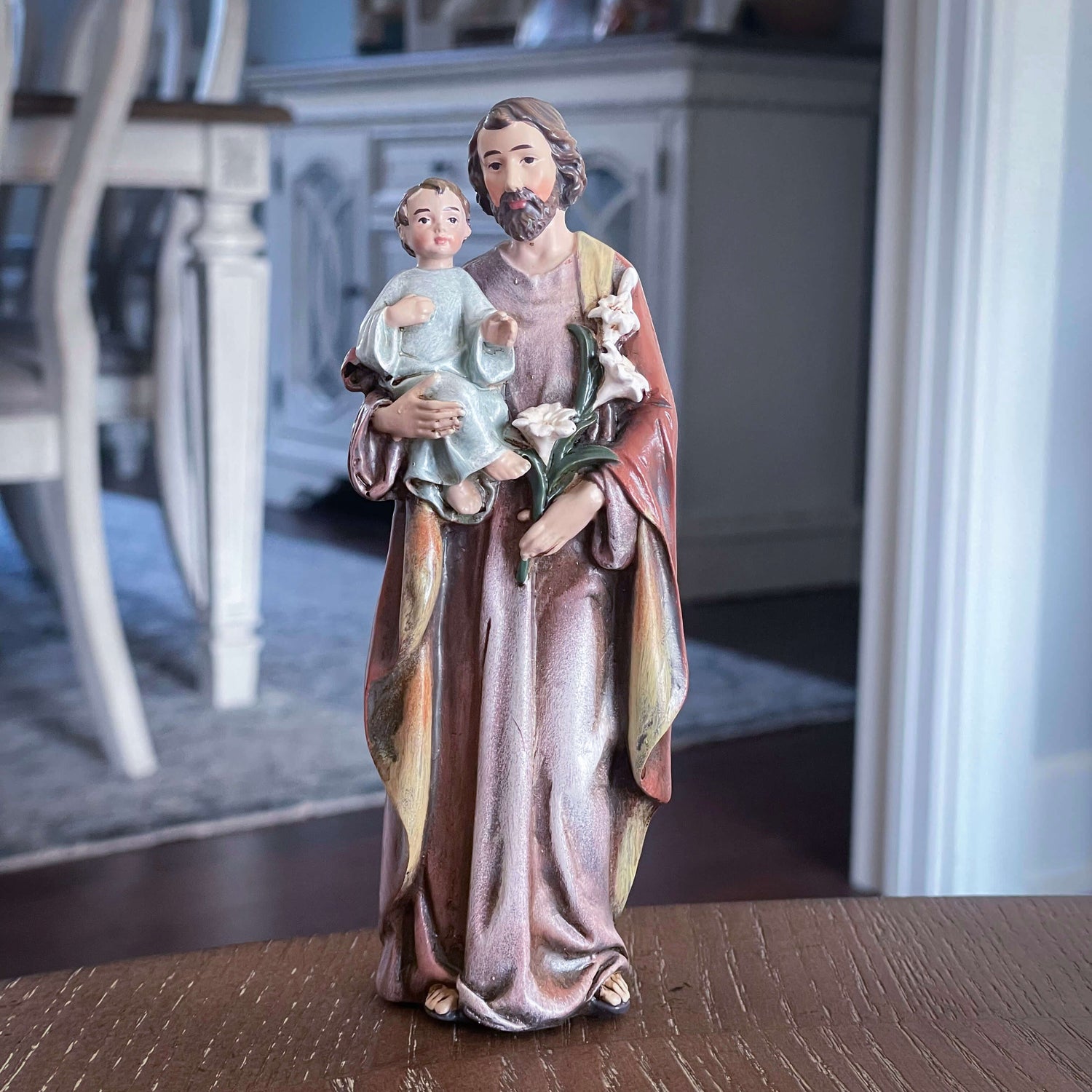Humility: Inspired by St. Joseph
Imagine being Joseph: your life's plans are upended when you find out your fiancée is miraculously pregnant. Despite the shock and societal judgment, Joseph's response is one of profound humility and faith. He accepts his role in God's plan, providing for Mary and Jesus with steadfast love and without seeking accolades. Today, humility might mean being the family's unsung hero—acknowledging our mistakes, prioritizing our family's needs, and embracing tasks without awaiting recognition. Joseph's silent, protective strength is a model for all of us in practicing humility in our daily lives.
Actionable Steps: Commit to a "Joseph Week" where you take on additional responsibilities at home, offering your spouse some much-needed rest or personal time.
Bravery: The Courage of St. Maximilian Kolbe
St. Maximilian Kolbe's story of bravery reaches its pinnacle in Auschwitz, where he volunteers to die in place of a stranger. But his courage was evident long before—through his unwavering faith and dedication to spreading God's word, even when faced with hostility. Kolbe's choice in Auschwitz—a place of despair—teaches us that true bravery often means standing firm in our faith and making sacrifices for others, regardless of the consequences. It prompts us to defend our beliefs and protect those in need, inspired by Kolbe's example.
Actionable Steps: Identify a situation where you've felt pressured to compromise your values. Commit to one act of bravery that upholds your faith or moral principles, even if it's uncomfortable.
Compassion: Learning from the Good Samaritan
The Good Samaritan parable challenges us to see beyond societal divisions and prejudices, to help anyone in need. It's a call to action, urging us to be the neighbor who stops to help, not the one who passes by. In our modern context, this means looking for Christ in everyone we meet and acting to alleviate their suffering. This Lent, let's strive to be more present, more empathetic, and more willing to reach out in kindness, breaking down the walls of indifference.
Actionable Steps: Make an effort to connect with someone outside your usual social circle. Show kindness and understanding to someone who might hold different beliefs or come from a different background.
Integrity: Franz Jägerstätter's Unwavering Conviction
Franz Jägerstätter faced the ultimate test of integrity when he refused to fight for the Nazis, a decision that cost him his life. His unwavering conviction in the face of certain death reminds us that integrity isn't just about the big moments; it's also about the small, everyday choices we make to live out our Catholic faith authentically. Jägerstätter's story is a powerful call to examine where our integrity is tested and to align our actions with our faith, ensuring we live truthfully in all aspects of life.
Actionable Steps: Reflect on areas of your life where you feel your integrity is tested. Make a conscious effort to align your daily choices with your faith, whether it's in business dealings, family life, or social activities.
Conviction: St. Thomas More's Moral Firmness
St. Thomas More's choice to prioritize God's law over the king's demands, even at the cost of his life, exemplifies the virtue of conviction. His story is particularly relevant in today's world, where moral relativism often challenges our faith and principles. More's steadfastness teaches us the importance of standing firm in our convictions, ensuring our beliefs are the foundation of our actions.
Actionable Steps: Talk with your family about the importance of conviction, using More's story as inspiration. Challenge yourself to stand by your beliefs, even when it's tempting to remain silent.
Unity: The Power of the Ulma Family's Collective Faith
The Ulma family's decision to shelter Jews at great personal risk highlights the strength found in unity and shared purpose. Their story is a witness to the power of family, faith, and sacrificial love in the face of danger. It inspires us to consider how our families can be a force for good, standing together in faith and love to make a difference in the world.
Actionable Steps: Start a family service project, finding ways to serve others together. Discuss how you can live out your faith as a family by identifying local needs or causes you're passionate about. Whether it's volunteering at a soup kitchen, organizing a neighborhood clean-up, or supporting a family in need, let these acts of service be a shared mission.
Wrapping Up
This Lent, let's not just go through the motions. Inspired by these examples of sacrificial love, we're called to act—making tangible changes in our lives that reflect our commitment to love as Christ loves. It's about stepping up as husbands and fathers, making sacrifices that matter, and strengthening our families and communities through our actions. Let's make this Lent a starting point for a deeper journey into sacrificial love, transforming our lives and those around us.









